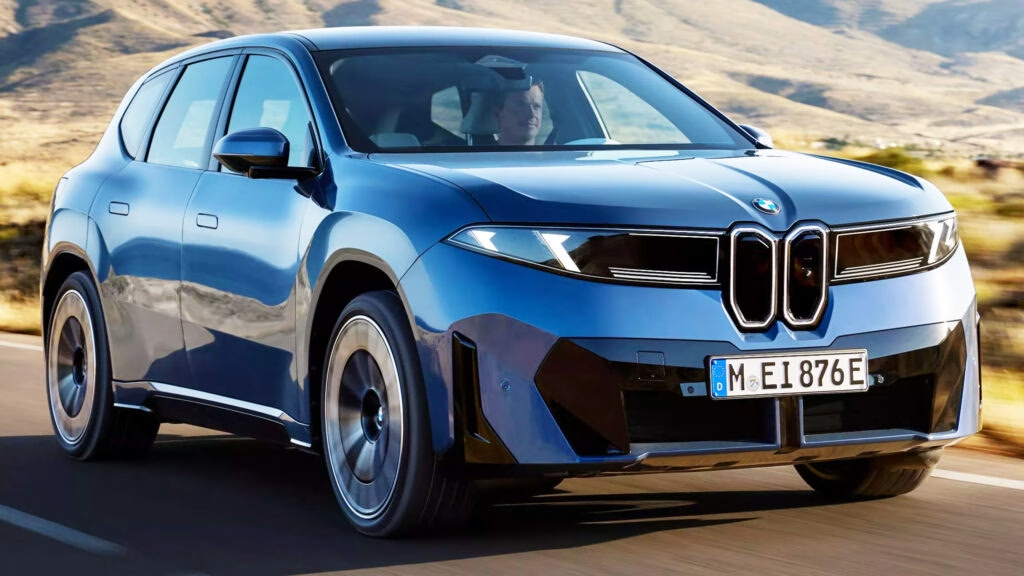How Is BMW Outpacing Chinese Automakers in Model Development?
For years, Chinese carmakers have been the poster children for rapid innovation—rolling out new models at a dizzying pace and reshaping expectations for what’s possible in automotive development. But BMW is now flipping the script. According to Joachim Post, BMW’s development director, the German brand has reached a point where it can develop and launch new vehicles even faster than its Chinese rivals. That’s a bold claim, especially considering how “China speed” has become shorthand for breakneck progress in the industry.
So, what’s BMW’s secret sauce? It’s not just about working harder or throwing more engineers at a problem. The real game-changer is artificial intelligence. BMW has woven AI into the very fabric of its development process, accelerating everything from software coding to knowledge retention. The result? Pure magic. Tasks that once took a full day now wrap up in minutes. And it’s not just about speed for speed’s sake—BMW is using this momentum to roll out a wave of new models under its Neue Klasse banner, promising 40 new vehicles and updates in just two years.
What Makes the Neue Klasse Era Different for BMW?
Neue Klasse isn’t just a catchy name—it marks a radical shift in how BMW approaches both design and technology. This new era is all about electrification, smarter platforms, and a unified tech backbone that stretches across the entire model range. Think of it as BMW’s moonshot: new electric vehicles with advanced batteries, more efficient motors, and a design language that’s a clear break from the past.
But here’s the kicker: BMW isn’t just focusing on one or two halo cars. The company is investing heavily to ensure that these innovations trickle down to every model. Post puts it bluntly—success isn’t about developing a single car quickly. It’s about orchestrating a technology leap across the entire lineup. That’s why BMW’s approach stands out. Instead of isolated sprints, it’s a coordinated relay, with each new model benefiting from the breakthroughs of the last.
How Is Artificial Intelligence Accelerating BMW’s Development?
Let’s get specific. BMW’s use of AI isn’t just a buzzword—it’s a practical tool that’s changing the day-to-day work of engineers and designers. For example, software development, which used to involve hours of manual coding and testing, is now streamlined with AI-powered tools. These systems can generate, test, and refine code at lightning speed, freeing up human engineers to focus on higher-level challenges.
But perhaps the most intriguing use of AI is in knowledge management. Traditionally, when a senior engineer left the company, they took years of hard-won expertise with them. Now, BMW is training AI models to capture and retain this institutional knowledge. That means the know-how stays in-house, and the learning curve for new hires gets dramatically shorter. It’s a subtle shift, but one with massive implications for continuity and innovation.
Are Other German Brands Keeping Up?
BMW isn’t the only German automaker feeling the heat from China. Audi, for instance, recently announced that its next-generation TT would hit the market just 30 months after sign-off—a timeline that would have seemed impossible a decade ago. The message is clear: the entire German auto industry recognizes the need to move faster, and they’re all looking for ways to close the gap.
Still, BMW’s approach stands out for its scale and ambition. While others are picking up the pace on select models, BMW is betting big on a wholesale transformation. It’s not just about matching China’s speed—it’s about redefining what’s possible in global automotive development.
What Does This Mean for Car Buyers and the Industry?
For consumers, this arms race in development speed is mostly good news. Faster development cycles mean fresher models, more frequent tech upgrades, and vehicles that better reflect the latest trends and needs. The downside? There’s always a risk that speed could come at the expense of quality or thorough testing. But so far, BMW seems determined to prove that you can have both.
Industry analysts are watching closely. According to a recent report from McKinsey, automakers that successfully integrate AI into their R&D processes can reduce time-to-market by up to 30 percent while also cutting costs. BMW’s aggressive timeline for the Neue Klasse rollout is a real-world test of that theory.
What’s the Real Impact of AI on Automotive Innovation?
It’s easy to get lost in the hype around AI, but the practical benefits are already showing up in BMW’s workflow. Beyond coding and knowledge retention, AI is also helping with predictive maintenance, supply chain optimization, and even customer personalization. The technology is still evolving, but its impact on the car industry is only going to grow.
The big takeaway? Reinventing how cars are developed isn’t about perfection—it’s about smarter adjustments. Start with one change this week, and you’ll likely spot the difference by month’s end. BMW’s story is proof that with the right tools and mindset, even the most established players can outpace the competition—and maybe even surprise themselves along the way.

